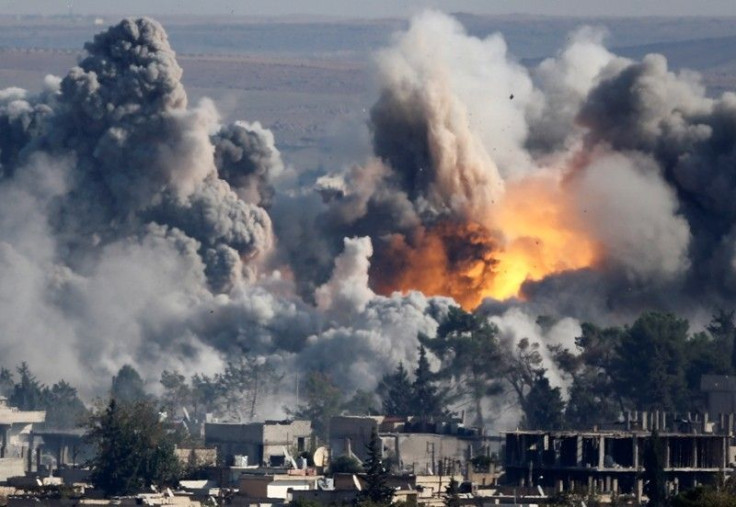US Attacks Against ISIS 'Ineffective' in Syria; Australian Forces Working With Iraqi Group Accused of Human Rights Violations

The U.S-led coalition airstrikes have not deterred ISIS militants from advancing in Syria. Despite the efforts of coalition forces conducting nearly 800 airstrikes in Syria, ISIS continues to gain more ground and takes control of at least one-third of the entire country.
ISIS' recent advances in rural areas of Syria appear to be part of its plans to eventually claim all major cities as part of its caliphate. The Daily Beast reported that ISIS has apparently not suffered major losses on the ground since the airstrikes began. The U.S-led campaign only resulted in more territories for the terror group.
Jennifer Cafarella, an Institute for the Study of War fellow in Washington studying the Syrian conflict, said ISIS has not lost any key territory. The U.S. military officials have grudgingly admitted that ISIS has gained ground in some areas despite the earlier reports of the Pentagon claiming the group had seized areas in Kobane. A Pentagon official previously told the media outlet that ISIS has advanced but coalition forces have stopped their momentum.
According to the U.S. and independent reviews, more than three months of airstrikes in Syria had proven to be ineffective in stopping ISIS, as militants continue to take more areas under their control. The lack of major impact on ISIS forces has raised concerns about the military strategy of U.S. President Barack Obama in the Middle East.
While U.S-led airstrikes have put ISIS militants on the defensive in Iraq, the bombing campaign has not seen that much success in Syria. ISIS had widened their territories in Syria since the U.S. began hitting the group's key strongholds in September, the Wall Street Journal reported. The group's progress in Syria may have been partly a result of the U.S. to focus more on Iraq where ISIS has seized large swathes of the country.
Meanwhile, Australian Special Forces sent to train and advise Iraqi troops in the war against ISIS are working with an Iraqi security force accused of torturing and killing prisoners. Prime Minister Tony Abbott has confirmed the deployment of 200 troops in Iraq to provide training for the Iraqi Counter-Terrorism Service. However, former Australian defence intelligence officers said the Iraqi security unit has been involved in "major war crimes and unnecessary civilian casualties," SMH reported.
Military experts agree that the Iraqi CTS are the most resilient and capable among the country's security forces. The unit was created by the U.S. military to track Al-Qaeda militants in Iraq and operates outside of Iraqi interior and defence ministries. The ongoing fight against ISIS militants saw the Iraqi Special Operations Force as responsible for summary executions of militants.
A former Australian Defence intelligence analyst told Fairfax Media that the CTS delivered results in combat operations against Al-Qaeda but at the expense of the rule of law. The Defence Department said Australian troops are required to report any incident of human rights violations. A spokesperson for the department has confirmed that no instance of alleged human rights violations were reported since Australian Special Forces had ties with ICT in late 2014.
To report problems or leave feedback on this article, contact: r.su@ibtimes.com.au





















